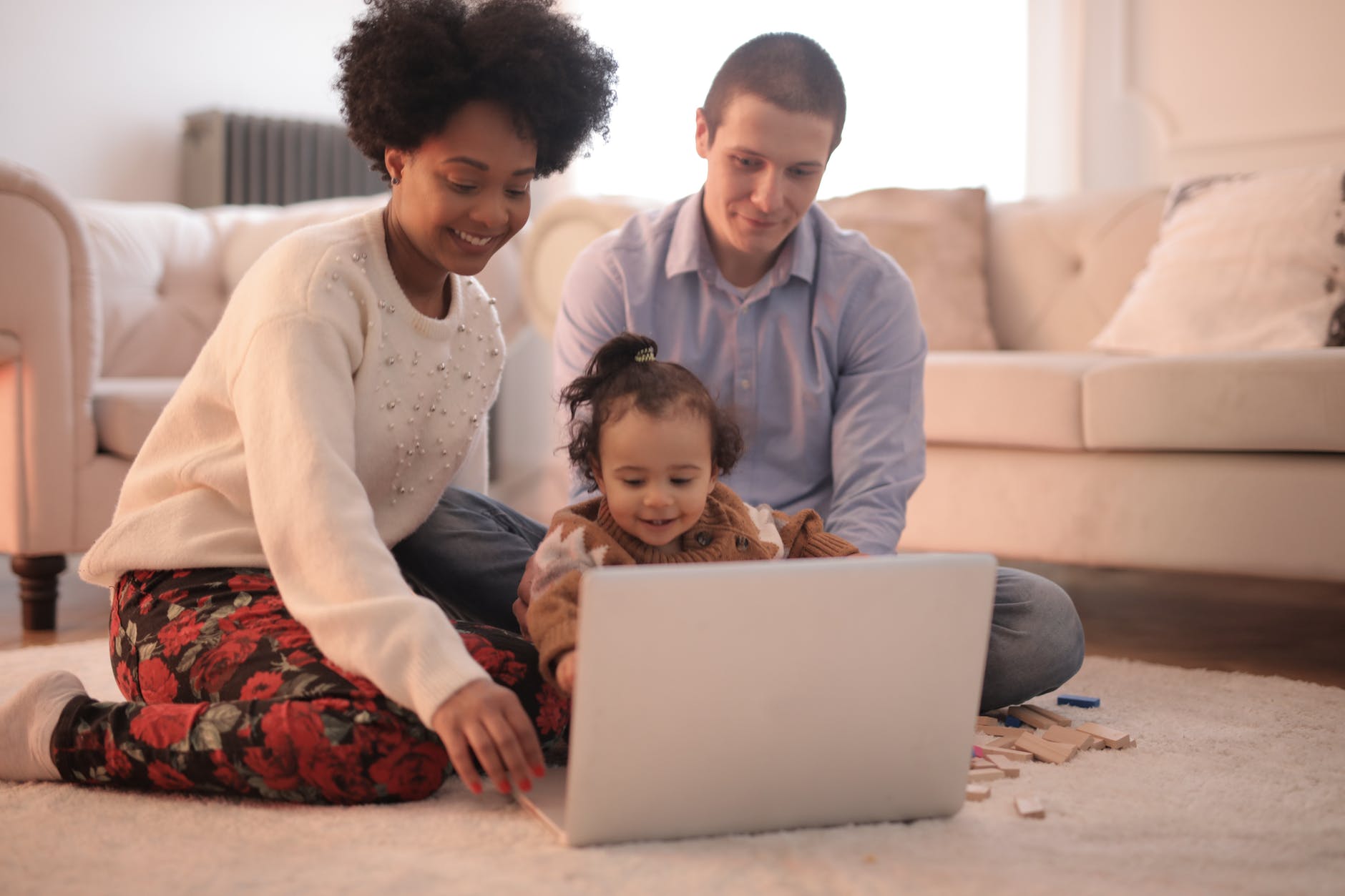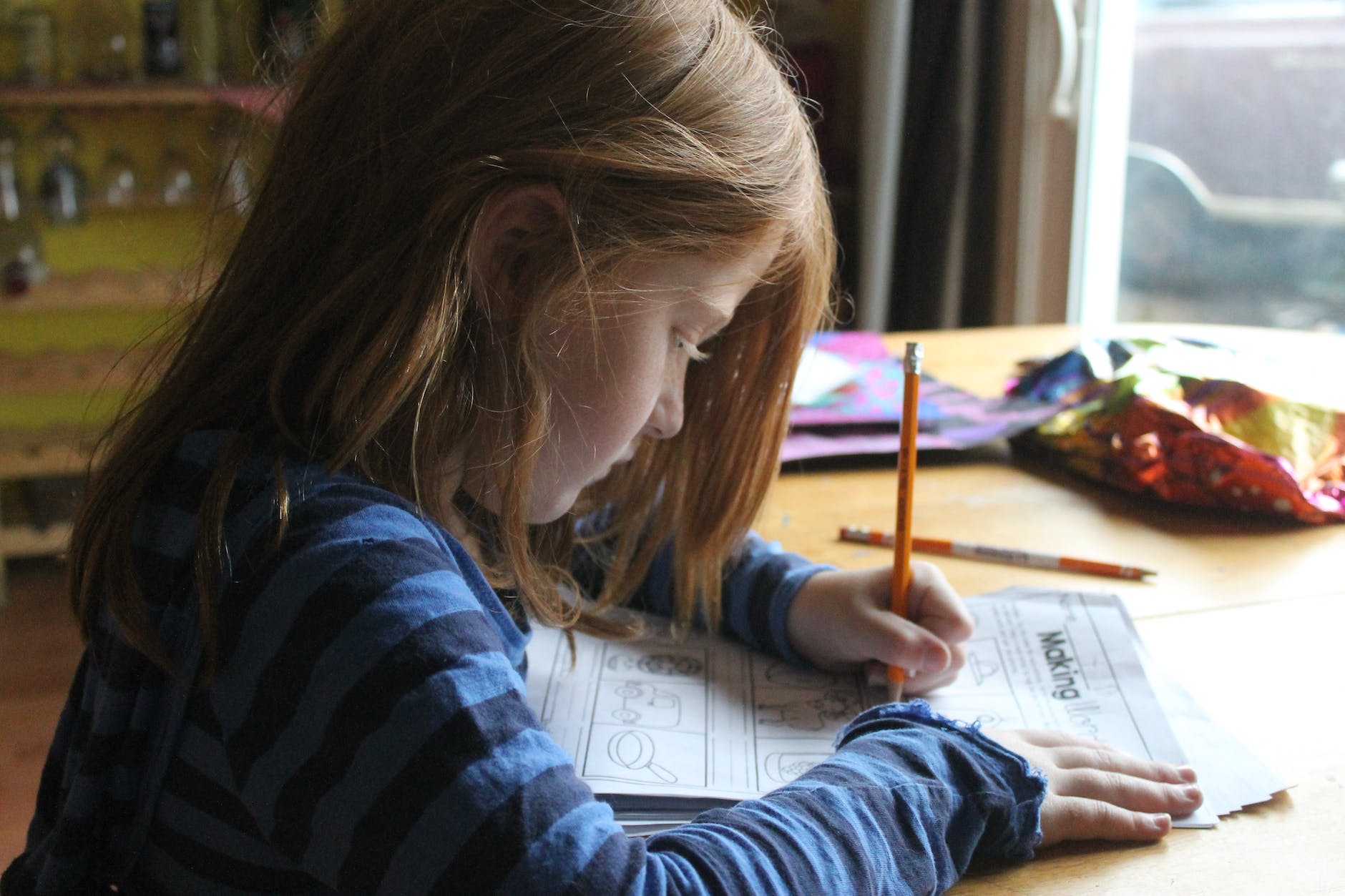Courtesy of the coronavirus pandemic, what used to be many parents’ dirty little secret — that our kids exceeded the recommended limits on screen time — is well and truly out in the open.
And that’s a good thing.
Over the past several months I have watched in amazement as my six and 10-year-old daughters developed their technology skills.
For the first few days of remote schooling, my six-year-old tended to be passive. But as the days and weeks passed, her confidence grew. She’d insist on clicking the link and typing her name in the text box before she could join the class.
She began raising her virtual hand to answer questions, muting and unmuting herself. Soon she was telling her teacher and her fellow kindy class (or prep, depending where you live) what she’d been up to on the weekend, or taking a guess at what her teacher had hidden in a box at the other end of the screen.
In the other room, my 10-year-old was practising her netiquette skills. At the beginning of lockdown, she’d answer calls with an abrupt, “What do you want?”
Now, after daily calls with classmates — and a few discussions with her about social etiquette — she begins with “Hi” and some small talk. It doesn’t sound like much, but it’s evidence of the many unsung skills young children have had accelerated thanks to their socialising and schooling online.
When she’s not chatting, my oldest daughter is taking her Minecraft skills to the next level, spending hours solving problems in constructing a world.
And for my part as a parent, I’m letting go of my guilt around it all.
Best practice takes practice
It’s easy to overlook such skills, assuming our kids are now born with an e-gene. But it’s important to remember that technology needs to be learned.
Best-practice use can only be developed through, well, practice. Sometimes called “digital literacy”, these skills are increasingly indispensable to our work and social lives. The more proficient our kids are with technology, the better prepared they will be for a future where digital skills will be integral to work and life.
Of course, this is not the story we parents are generally told about screens. For years, we’ve been warned that screens ruin our kid’s attention spans, corroding their social skills and risking their physical and mental health.
It all sees parents riddled with guilt when their kids inevitably use screens. At worst, it makes us terrified we are harming our children.
Once you get past the panic and parent shaming, the evidence for the dire effects of screens on kids isn’t as clear-cut as it seems.
What the research on screen time tells us
Professor Stephen Houghton from the University of Western Australia has conducted research on adolescent mental health and time spent on screens. He says many of the claims about the harmful effects of screen on kids is “questionable”.
“I was looking at the data [allegedly] saying that if you spend too much time on screens it’s going to make you depressed, anxious, lonely,” says Professor Houghton. “But I couldn’t really find any evidence showing that.”
In a study on the links between screen time and depression in adolescents, Professor Houghton and his colleagues found “no substantial evidence for a longitudinal association between screen use and depressive symptoms”.
They conclude this “undermines the likelihood that there is a causal link between screen use and subsequent changes in depression, or vice versa”.
They did, however, find that increasing screen time may indicate that some adolescents are using screens to cope with poor mental health.
The World Health Organization recommends parents limit screen time for children aged 2-4 to no more than one hour per day, with no screen time for children aged one and under. But even the WHO acknowledges that evidence for this advice is poor. In the report where the WHO makes its recommendation, it qualifies it by saying: “Strong recommendations, very low quality evidence.”
Part of the problem with much of the research on screen time is that it is often based on huge sets of data where even tiny effects become statistically significant. But what is significant in statistical analyses may have very little bearing on real life.
To illustrate the point, Dr Amy Orben and Professor Andrew Przybylski from the University of Oxford’s Department of Experimental Psychology compared the effects of using digital technology on adolescent’s wellbeing and other activities, including regularly eating potatoes and wearing glasses.
While they found a small association between technology and a drop in adolescent wellbeing, using the same measures, they found that eating potatoes was almost as ‘bad’ for adolescent wellbeing, and wearing glasses was even worse. Writing in the journal Nature, Dr Orben and Professor Przybylski note this “suggests that the effects of technology might be statistically significant, but so minimal that they hold little practical value”.
Given the inconclusive evidence, the Royal Society for Paediatrics and Child Health in the UK doesn’t recommend limits on screen time. According to the RSPCH: “The evidence base for a direct ‘toxic’ effect of screen time is contested, and the evidence of harm is often overstated.”
It’s not how much screen time, but what kind
Registered psychologist Jocelyn Brewer has a special interest in the psychology of technology. She says what’s far more important than the time your kids spend on a screen is what they are watching or doing.
“Giving a 10-year-old a device that has unlimited access and not keeping an eye over what they’re actually doing is really, really different to saying, ‘Okay, we’re going to watch Mister Maker and then we’re going to make the stuff,’” says Ms Brewer.
If parents are concerned about their kid’s screen time, Brewer recommends spending some time in their digital worlds.
“Some of the homework I give parents is to go and download a game like Fortnite or PUBG and go and play it and work out how hopeless you are at it. Be vulnerable to not knowing and not having the answers,” says Ms Brewer.
“An insurance policy against your kid getting addicted is you getting into it first.”
This is not to say that all your children’s screen time requires intensive parental monitoring.
My wife and I rely on our children’s screen time in order to get our own work done and have a break as much as the next parent. But we manage risk by having an open door policy in our house, setting up parental controls and regularly checking in with what our children are doing on their screens.
Not only are screens here to stay, they were hugely beneficial during coronavirus lockdown. I cannot imagine how much harder those weeks of work, school and social life would have been without them.
If nothing else, all the time on screens gave my daughters a new appreciation of their friendships. They could not wait to go back to school to see their classmates in person.
As we emerge from lockdown with fresh perspectives, assessing what parts of our old lives we would like to stay and what we’d like to change, perhaps screen guilt is one burden we can choose to leave behind.




Leave a Reply